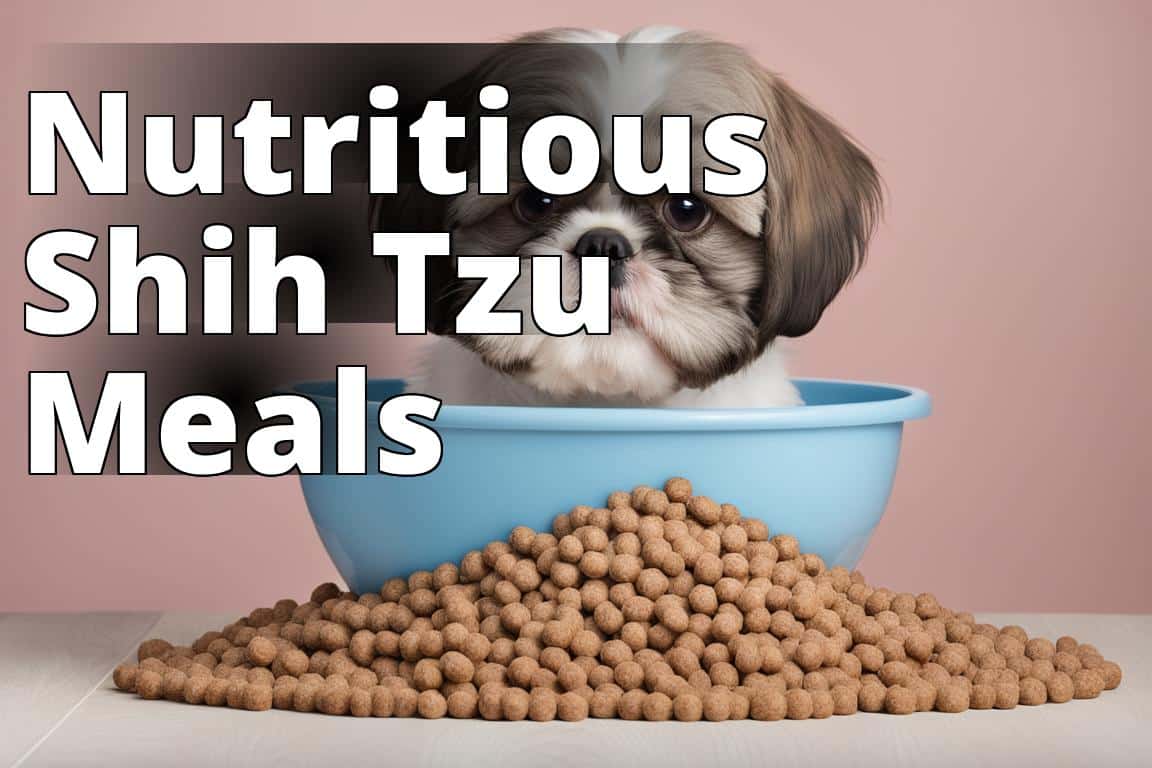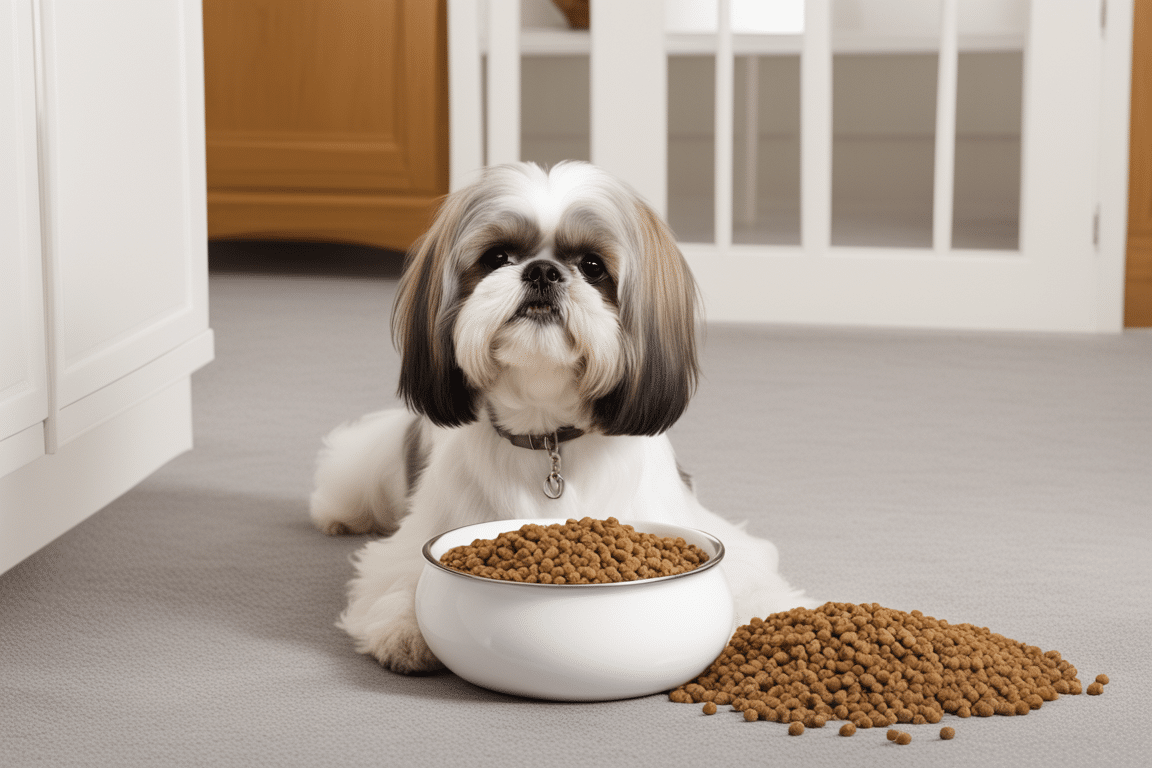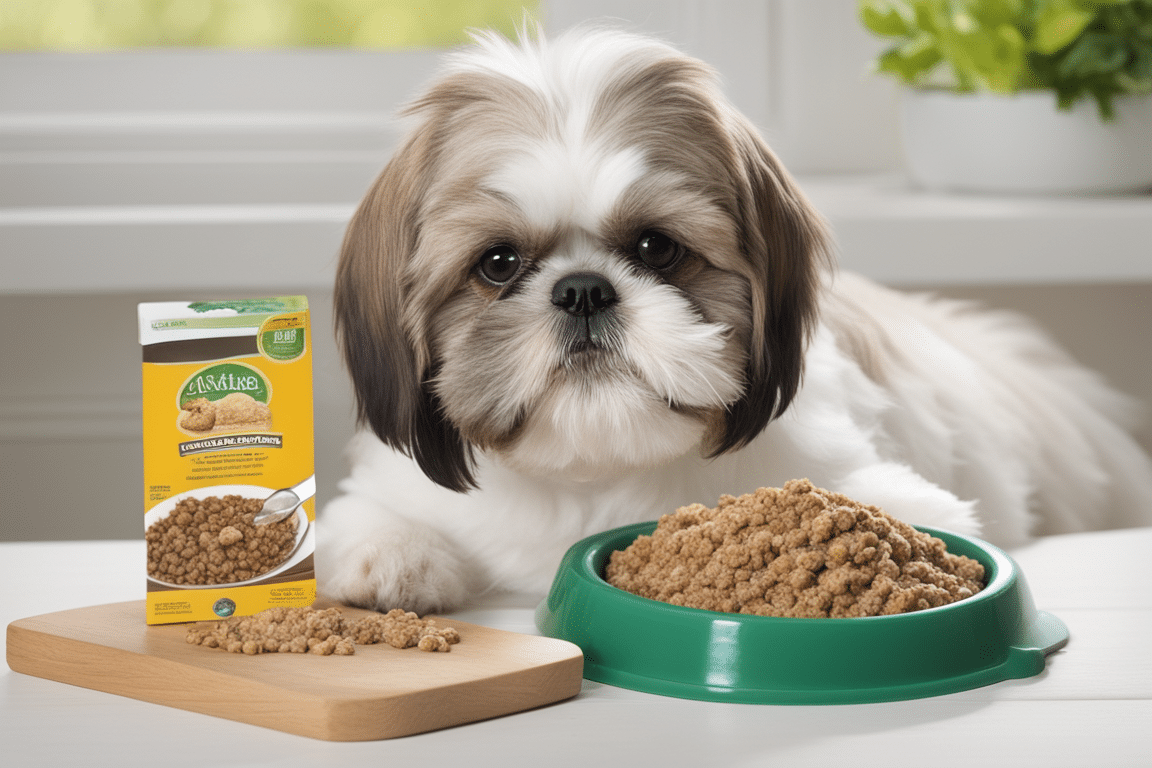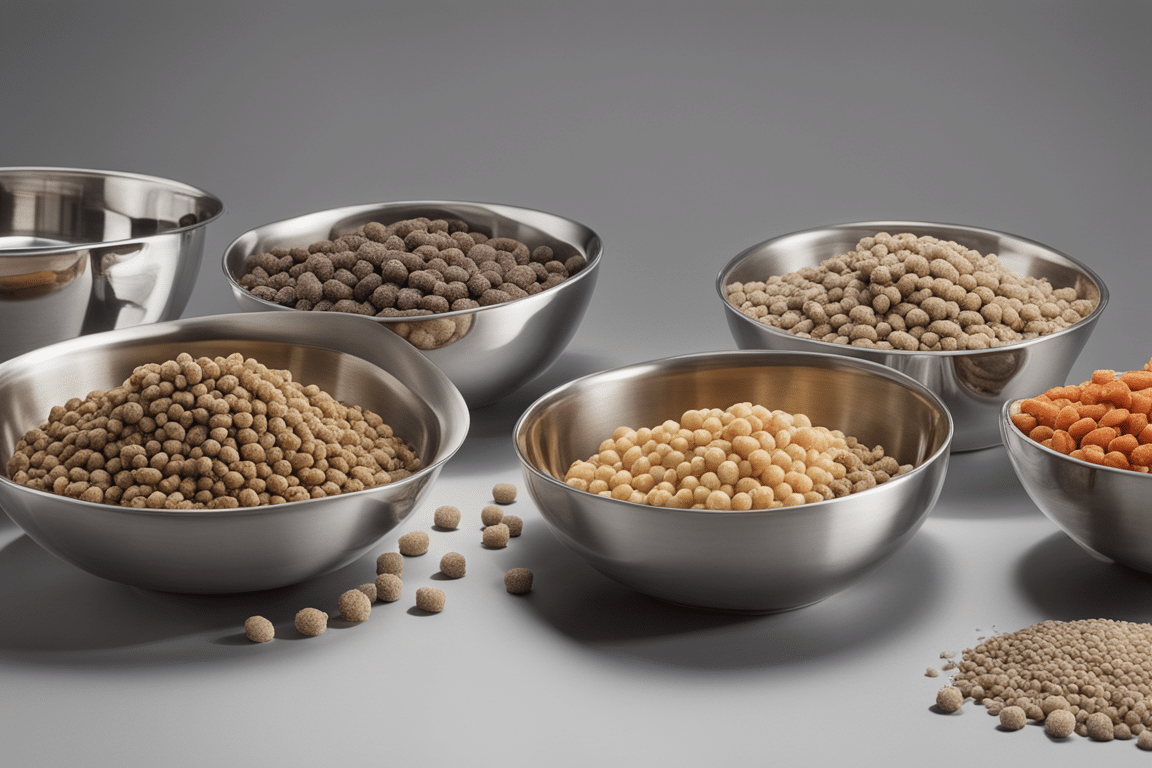

Are you looking for the best food for a Shih Tzu? Shih Tzus are a delightful and affectionate toy breed known for their luxurious coats and charming personalities. These small dogs have a lively and friendly disposition, making them wonderful companions for individuals and families alike. Shih Tzus typically weigh between 9 to 16 pounds and stand at a height of 9 to 10.5 inches at the shoulder. Their energy levels can vary from playful and active to calm and relaxed, depending on the individual dog’s temperament and age.
What You’ll Learn About the Best Food for a Shih Tzu
- Shih Tzus’ unique dietary requirements and considerations.
- Nutritional needs, feeding guidelines, and suitable types of dog food.
- Recommended dog food brands, homemade food options, and special dietary considerations.
In terms of dietary considerations, Shih Tzus require a well-balanced and nutritious diet to support their overall health and well-being. Their diet should address their specific nutritional needs, taking into account their size, energy levels, and potential health concerns commonly associated with the breed.

Nutritional Needs of Shih Tzus
High-Quality Protein
Protein plays a crucial role in a Shih Tzu’s diet. It aids in muscle development, supports a healthy coat, and provides essential amino acids necessary for various bodily functions. When selecting the best food for a Shih Tzu, it’s important to ensure that the protein source is of high quality and easily digestible. Look for dog food that includes sources of animal-based proteins such as chicken, turkey, or fish, as these are highly beneficial for Shih Tzus.
Fats, Vitamins, and Minerals
Apart from protein, Shih Tzus require a balanced intake of fats, vitamins, and minerals. Omega-3 and Omega-6 fatty acids contribute to skin and coat health, while vitamins and minerals support overall immune function and vitality. It’s essential to choose dog food that contains a healthy balance of these nutrients to meet the specific needs of Shih Tzus.
Age and Activity Level
Shih Tzus’ nutritional requirements can vary based on their age and activity level. Puppies may have different needs than adult dogs, and senior Shih Tzus may require specialized diets to support their aging bodies. Additionally, the energy levels of individual dogs can influence their dietary needs, with more active dogs requiring different nutrient profiles than their less active counterparts.

Feeding Guidelines for Shih Tzus
Feeding guidelines for Shih Tzus should be approached with careful consideration of their size, activity level, and age.
Detailed Feeding Guidelines
For Shih Tzu puppies, it’s recommended to feed them small, frequent meals to support their growth and energy needs. As they transition into adulthood, the feeding frequency typically reduces to two meals per day. Adult Shih Tzus generally thrive on a consistent feeding schedule, with portion control being essential to prevent overeating and weight gain.
Portion Sizes and Feeding Frequency
Portion sizes for Shih Tzus can vary based on the specific dog’s age, weight, and activity level. It’s crucial to follow the recommended portion sizes provided by the selected dog food brand or as advised by a veterinarian. Additionally, maintaining a consistent feeding schedule can help regulate their energy levels and prevent digestive issues.
Consistent Feeding Schedule
Shih Tzus benefit from a consistent feeding schedule as it helps regulate their metabolism and prevents potential digestive issues. It’s important for owners to establish a routine and adhere to regular feeding times to support the overall well-being of their Shih Tzu.

Types of Dog Food Suitable for Shih Tzus
Shih Tzus can thrive on a variety of dog food options, including dry kibble, wet food, and raw food diets. Each type of dog food comes with its own set of advantages and considerations.
Different Types of Dog Food
| Pros | Cons |
|---|---|
| Dry Kibble: Convenient and cost-effective. Promotes dental health. Longer shelf life. | May lack moisture content. Some may contain fillers or artificial additives. |
| Wet Food: Appealing to picky eaters. Provides hydration. | Shorter shelf life. High moisture content may lead to rapid spoilage. |
| Raw Food Diets: Natural approach to nutrition. | Risk of bacterial contamination. Requires careful planning for balanced nutrition. |
Dry Kibble
Dry kibble is a convenient and cost-effective option for many Shih Tzu owners. It provides essential nutrients and helps maintain dental health by promoting chewing. Additionally, it has a longer shelf life compared to wet food, making it a practical choice for many households.
Wet Food
Wet food can be appealing to picky eaters and provides additional hydration, which can be beneficial for Shih Tzus who may not drink enough water. It’s important to consider the quality of ingredients and ensure that the wet food meets the nutritional requirements of Shih Tzus.
Raw Food Diets
Some owners opt for raw food diets, consisting of raw meat, bones, fruits, and vegetables. While a raw food diet can offer certain nutritional benefits, it’s crucial to consult with a veterinarian to ensure that the diet is well-balanced and safe for the Shih Tzu.
Pros and Cons of Each Type
| Pros | Cons |
|---|---|
| Dry Kibble: Convenient and cost-effective. Promotes dental health. Longer shelf life. | May lack moisture content. Some may contain fillers or artificial additives. |
| Wet Food: Appealing to picky eaters. Provides hydration. | Shorter shelf life. High moisture content may lead to rapid spoilage. |
| Raw Food Diets: Natural approach to nutrition. | Risk of bacterial contamination. Requires careful planning for balanced nutrition. |
Factors to Consider When Selecting the Best Food
When selecting the best food for a Shih Tzu, it’s important to consider factors such as the dog’s age, activity level, and any specific dietary requirements or restrictions. Additionally, the quality of ingredients, reputation of the brand, and consultation with a veterinarian all play a crucial role in making an informed decision.
By understanding the types of dog food available and their respective pros and cons, Shih Tzu owners can make well-informed choices that cater to their pet’s specific needs.
In conclusion, providing the best food for a Shih Tzu is essential for their overall health and well-being. By understanding their nutritional needs and considering the appropriate feeding guidelines, owners can ensure that their beloved Shih Tzus lead healthy and happy lives.
Common Questions
Who determines the best food for a Shih Tzu?
A veterinarian can help determine the best food for your Shih Tzu based on their specific needs and dietary requirements.
What is the best food for a Shih Tzu?
The best food for a Shih Tzu is a high-quality, well-balanced dog food that is formulated for small breeds and meets their nutritional needs.
How can I transition my Shih Tzu to new food?
Slowly mix the new food with the old food over 7-10 days, gradually increasing the amount of the new food to allow your Shih Tzu to adjust.
What if my Shih Tzu is a picky eater?
If your Shih Tzu is a picky eater, try offering different flavors and textures, or consult with a veterinarian for advice on improving their appetite.
What if my Shih Tzu has food allergies?
If your Shih Tzu has food allergies, look for hypoallergenic dog food options and consult with a veterinarian to determine the best diet for them.
How do I ensure my Shih Tzu’s food is balanced?
Ensure your Shih Tzu’s food is balanced by choosing a reputable dog food brand that meets AAFCO guidelines and consulting with a veterinarian.




